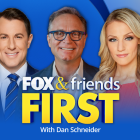YouTube’s Chief Product Officer Neal Mohan admitted on The Verge’s Decoder podcast that the removal of YouTube videos for so-called “misinformation” is merely “[a] very, very small portion” of the content that the platform purges.
Mohan said on the Decoder podcast that “we tend to focus on [a] very, very small portion of what happens there, which is videos that stay up or come down on the platform.” Mohan later clarified that although “more subtle,” YouTube’s algorithms play an “even more critical role in terms of how YouTube works.”
He explained: “[I]t’s not just about videos that come down or stay up, it’s also about how our recommendation systems work. It’s about how the ranking system works. It’s about how our search systems work.”
He described what he called the “four Rs framework,” of YouTube content moderation: remove, reduce, raise and reward. Mohan said YouTube removes content that violates its guidelines, but he also acknowledged that the platform reduces the visibility of certain content that does not break its Community Guidelines. “We also reduce content in our recommendations and ranking algorithms when they are not clearly community-guideline violative, but could be borderline for other reasons.” He also confessed that the platform censors content despite “oftentimes the lines [being] very blurry and not clear.” Mohan rhetorically asked: “What’s the line between political speech and misinformation?”
The YouTube executive said that the platform is “[r]aising up authoritative content” particularly in relation to COVID-19 and so-called “medical misinformation.” He also verified that YouTube rewards certain creators by “orienting the monetization resources towards those creators that are looking to do the right thing.”
Mohan’s remarks expanded on what YouTube CEO Susan Wojcicki told CNN’s Brian Stelter on Reliable Sources last year. She bragged about her platform "raising authoritative information" and removing “medically unsubstantiated” information that contradicted the Chinese propaganda-pushing World Health Organization or local health authorities.
YouTube’s style of systemic censorship recently affected Senator Rand Paul (R-KY) first when he said in an interview that cloth masks were ineffective and then a second time when he made a response video on the censorship of medical information. Family Research Council President Tony Perkins also temporarily had his video removed when he discussed a Washington, D.C. law that would bypass parental consent for unvaccinated minors.
Conservatives are under attack. Contact YouTube at 650-253-0000 and demand that Big Tech be held to account to mirror the First Amendment while providing transparency, clarity on “misinformation” and equal footing for conservatives. If you have been censored, contact us at the Media Research Center contact form, and help us hold Big Tech accountable.










